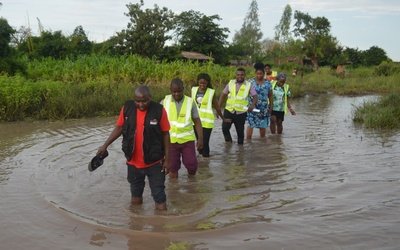
Next week, the climate case brought against Royal Dutch Shell by Dutch environmental organisation Milieudefensie is due to start. Milieudefensie hopes to force the company to stop causing dangerous climate change and adopt a more sustainable course. Six Dutch organisations have decided to become co-plaintiffs in the case. They include ActionAid and Both ENDS, organisations that work outside the Netherlands on human rights, gender equality, environment and sustainable development. Though, at first glance, the case may not seem relevant to them, nothing is farther from the truth, as Nils Mollema of ActionAid and Niels Hazekamp of Both ENDS explain.
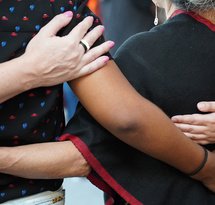
This February women environmental defenders from around the world met each other in Indonesia. All these defenders face structural violence. GAGGA, the Global Alliance for Green and Gender Action, supports these women. This meeting in Indonesia provided a unique space for women, trans-, intersex and non-binary people who are often the subject of conversation but rarely have the opportunity to engage with each other and meet other defenders from around the world. For they are all amazingly knowledgeable, strong and resilient women whom we should take seriously.
Civil society organisations from around the world condemn the statements by representatives of palm oil companies during a meeting with the Malaysian government. In this meeting, the company representatives called critical NGOs "toxic entities" and asked the Malaysian government to not let these NGOs into the country. Both ENDS' partners have published a reaction in which they defend their right "to expose the realities we face in their communities about the impacts of the palm oil sector".
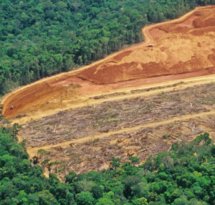
The EU is the world's largest "importer of deforestation," due to the huge volumes of unsustainably produced soy, timber, palm oil, and other raw materials that EU member states import. After many years of delay, the European Parliament and the European Council passed a law in December 2023 to address this problem: The EU Deforestation Regulation (EUDR). Both ENDS is part of a broad coalition of organizations that have been pushing for this European legislation. However, there is now a serious delay, and perhaps even postponement, of the law's implementation. Objections have been raised by a number of member states, who are sensitive to lobbying by certain business sectors and producer countries.
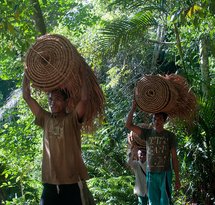
Palm oil production is widely associated with land grabs, human rights violations, large scale monoculture and severe environmental damage. Positive examples in the palm oil sector are rarely highlighted, but fortunately they do exist. Companies like Musim Mas and Bumitama in Indonesia are leading a much needed shift to a more environmentally and socially responsible way of palm oil production. Recently, Ms. Lim Sian Choo, Head of Corporate Secretarial Services and of Corporate Social Responsibility of Bumitama was in the Netherlands for an informal meeting organised by AidEnvironment and Both ENDS. Representatives from the private sector, NGOs and government were also present to discuss concrete steps taken by Bumitama to achieve sustainability in real time.

Germany must use its influence as president of the EU in the second half of this year to ensure that the controversial EU-Mercosur free trade agreement is not signed. This is the message in a letter presented to German chancellor Angela Merkel today by 265 civil society and environmental organisations from the EU and Mercosur countries. The deal between the EU and Argentina, Brazil, Uruguay and Paraguay will stimulate destruction of the natural environment and the violation of human rights in vulnerable areas in South America. The agreement will also give European farmers an unfair competitive advantage. Dutch signatories to the letter include Greenpeace and Both ENDS and various organisations united in the Handel Anders! coalition.
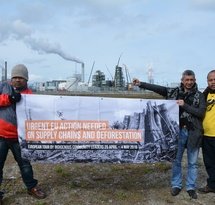
Over the past 15 years the production of palm oil has increased enormously, and not without reason: palm oil, pressed from the fruit of the oil palm, is cheap and is used in many different products. It is processed in ice cream, chocolate, margarine and sauces, but also in personal care products and cosmetics such as lipstick, detergent, toothpaste, soap and biofuel. Unfortunately, the large demand for palm oil has quite some negative side effects: large-scale deforestation, pollution, 'land grabbing' and above all human rights violations are common practice in countries where palm oil is produced.
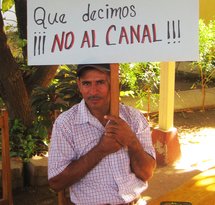
How can we more effectively implement FPIC-legislation and ensure the fundamental community rights of indigenous peoples are protected? Both ENDS' Wiert Wiertsema explores this question in an article in the newsletter of our partner NTFP-EP.

Dredging Destruction: Report reveals how Dutch dredging companies are systematically destroying human lives and the environment around the world with the help of taxpayers’ money
The Netherlands is providing billions of euros in support for dredging projects by Boskalis and Van Oord around the world. All of these projects are destroying human lives and the environment. The Dutch government’s policy to protect people and planet is failing systemically. And after twelve years of studies and talking, there are no real improvements. It is time for a thorough clean-up of government support for the dredging sector.